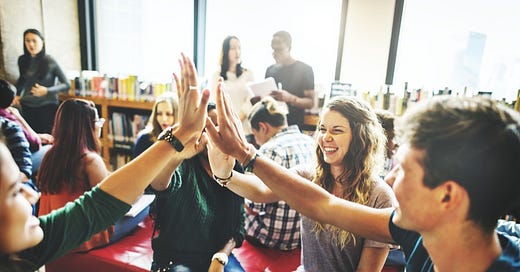Research Hit: Our Brains are Programmed to Learn Better from People we Like
How in-groups and likability influence how quickly and effectively we remember and make inferences.
Or we don’t learn from people we dislike?
Yes, indeed that could also be the case. But it is fascinating to see that this likability impacts learning.
What do you mean by an inference?
Well, an example given by one of the researchers is that if you see a man walking a dog near your house, then later in the day you see a woman walking the same dog you would probably immediately infer that the man and women are a couple.
But we can over infer, or over generalise as well?
Of course, but that is another problem. But making connections between distant objects or scenarios is important and a sign of intelligence also.
OK, and we do this better with people we like?
Yes, Marius Boeltzig et al. of Lund University conducted three experiments with US cohorts using simple everyday objects. They also rated the people that presented them this information on their likability based on various aspects such as political views, major, eating habits, favourite sports, hobbies, and music. They then measured how well they remembered the objects and made connections between them (such as if they would be used together).
Participants performance on memory, inference were then compared to how much they liked or related to their instructors. Basically the more you relate to, have similar tastes, or simply like your instructor, the more you are likely to remember and are better able to make inferences.
So, not just simple likability but also various in-groups?
Yes, and that is very important: it shows that in-groups are very important and this is probably the deep psychological mechanism involved which is based on evolutionary principles - i.e. trust and remember the information from those in your in-group, who you trust, because the information they give is likely more relevant and trustworthy.
So this is very relevant in politics not just in the classroom!?
This explains a lot in politics - particularly the concept of inference because we may infer different things from the political groups we like or dislike irrespective of the cause.
But for the classroom it highlights how teachers we liked the most, probably taught us more - maybe it is because we liked them, and not because they were good teachers.
Or that being likeable is a key aspect of being a good teacher
That also!
Thank god, we’re likeable!
Are you sure?
Reference:
Marius Boeltzig, Mikael Johansson, Inês Bramão.
Ingroup sources enhance associative inference.
Communications Psychology, 2023; 1 (1)
DOI: 10.1038/s44271-023-00043-8




